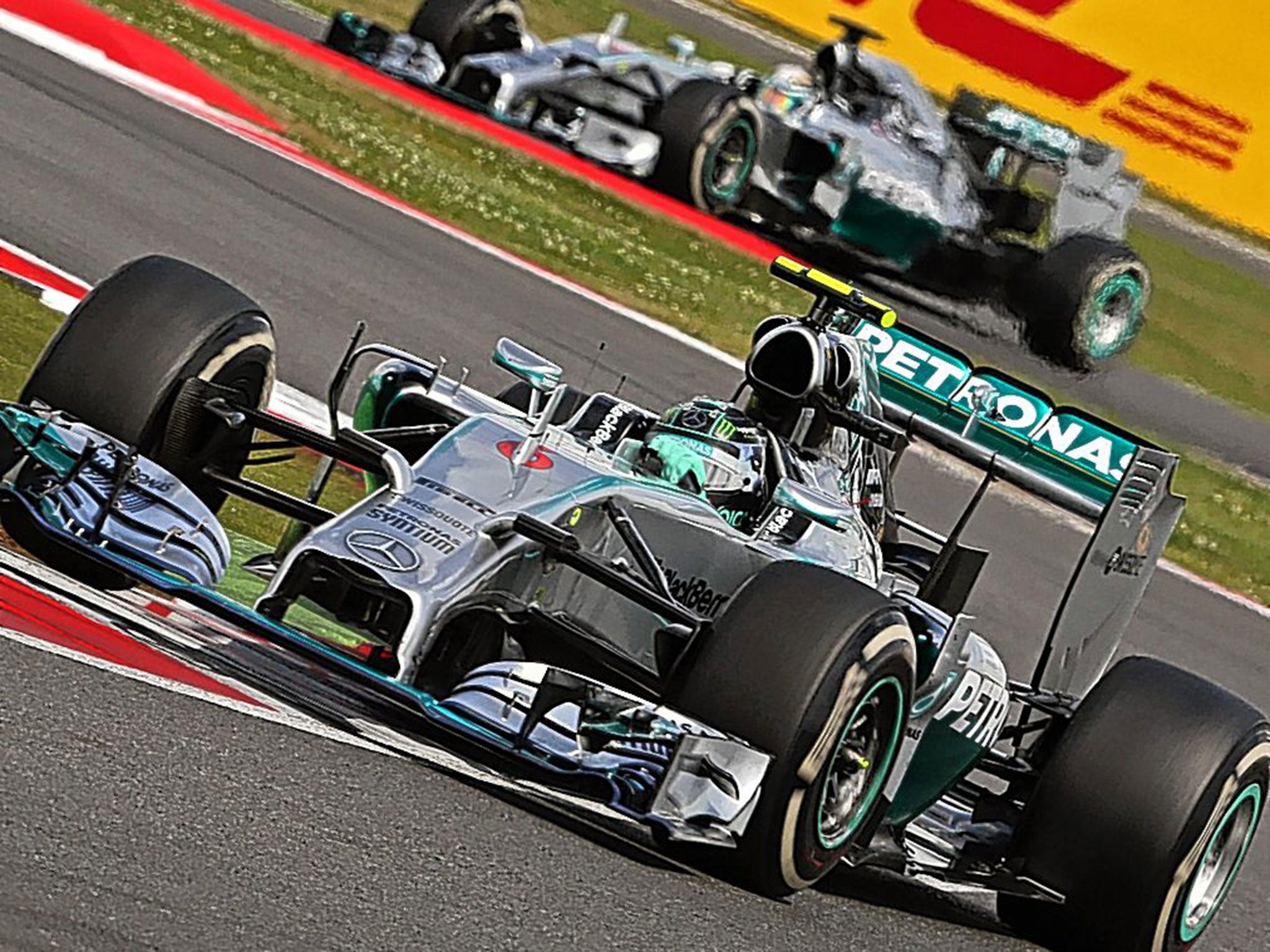British Grand Prix 2014 comment: F1 risks losing its soul since the centre of gravity shifted from driver to vehicle
Imagine how good the season might be if all the drivers had a Mercedes underneath them

The cars are not the only elements in Formula One that go round in circles. The debate about rising costs and falling viewing figures orbits with depressing regularity. For as long as this observer has been writing about grand prix racing the sport has been mired in the same issues.
So Silverstone echoed to themes aired last month at Biggin Hill, scene of the latest gathering of the heads of state to thrash out a formula that might reset parameters. These episodic encounters are invariably described as crunch meetings to drape a sense of urgency around the need to act. Well done to all those who managed to stave off sleep as the old arguments poured forth.
The biggest issue is cost. Yawn. Representatives from the teams, promoters and sponsors joined Jean Todt, the president of the sport’s ruling body, the FIA, and its commercial driver, Bernie Ecclestone, to examine proposals made by a quango called the F1 Strategy Group, which tabled recommendations including the introduction of standard parts, reduction in the use of wind tunnels and other expensive technologies, and cutting back on testing.
Weary echoes of Flavio Briatore banging on about “the show” and the madness of spending billions in academic culs-de-sac in pursuit of minuscule automotive advantage always come to mind at moments like this.
The jumper salesman from Piedmont was a many-sided maverick capable of all sorts of chicanery but he had an intuitive understanding of the requirements that made Formula One a success: excitement, glamour, speed, emotion, caprice, risk and derring-do. You might recognise these as human qualities. They do not inhere in carbon fibre, aerodynamics, powertrains, suspension geometry, rubber, telemetry or pit-stop algorithms.
Todt’s predecessor and Ecclestone confidant Max Mosley was another whose eyes would roll at the scale of monies poured into scientific black holes by, as he liked to dismiss them, an engineering priesthood bent on innovation that goes unrecognised, unappreciated and unloved by the audience it purports to serve, ie the fans.
Annual budgets upwards of £200m cannot be sustained by the big car manufacturers, never mind independent teams. Somewhere along the line the meaning of what it is to race cars has been lost. The centre of gravity has shifted from pilot to car, and as a consequence the sport risks losing its soul.
Instead of repairing around the sandwiches at Biggin Hill, the heads of the the sport’s families must first establish what they want Formula One to be.
By placing automotive science and technological innovation at the centre of the piece, Formula One is at the mercy of the laboratory guru, the boffin with the best solution. So this year the men in Mercedes white coats have stolen a march with their powertrain mastery.
This development trumped the aerodynamic design genius of Adrian Newey, whose talent for understanding how cars go around corners is greater than that of any man alive and produced four years of unanswerable dominance at Red Bull. Before that McLaren briefly had the drop. Before them Renault, Ferrari and so on. The answer to this dominance has historically been the radical rule change to shake up the design template, but all this has done is present another team with the chance to dominate. Thank goodness Mercedes have two drivers brilliantly matched and capable of giving each other the hurry-up.
The head-to-head between championship leader Nico Rosberg and team-mate Lewis Hamilton has delivered at times breathless racing, the kind of primal engagement that compels the eye to watch. Imagine how good the season might be if all the drivers had a Mercedes underneath them.
All things being equal, pole and the chequered flag are claimed in each race by a Mercedes driver, frequently the same one. Predictability is death to the spectacle.
Another damaging aspect of the mad arms race is the manner in which it takes great drivers out of the equation.
It is a calamity for the sport that a driver as deeply resourced as Fernando Alonso has been neutered for so long. And where is the joy in seeing Sebastian Vettel emasculated in a spluttering Red Bull?
Formula One is in this epoch answerable to the needs of big car companies, not sport. Racing is justified in terms of its relevance to the motor industry, which inverts the essence of the game in a manner which might yet be terminal.
Clearly, the car is central to the endeavour but unless the sport recognises the primacy of the driver it is doomed. It is the man behind the wheel who drives the car and our interest, not the reverse.
Finally, the regulatory body must have absolute control of the decision making.
In the present, arcane scheme of things any decisions over costs and other fundamental matters require the unanimous support of the teams. Since Ferrari and Caterham, Mercedes and Force India see the world differently, unanimity is never going to happen.
Join our commenting forum
Join thought-provoking conversations, follow other Independent readers and see their replies
Comments
Bookmark popover
Removed from bookmarks